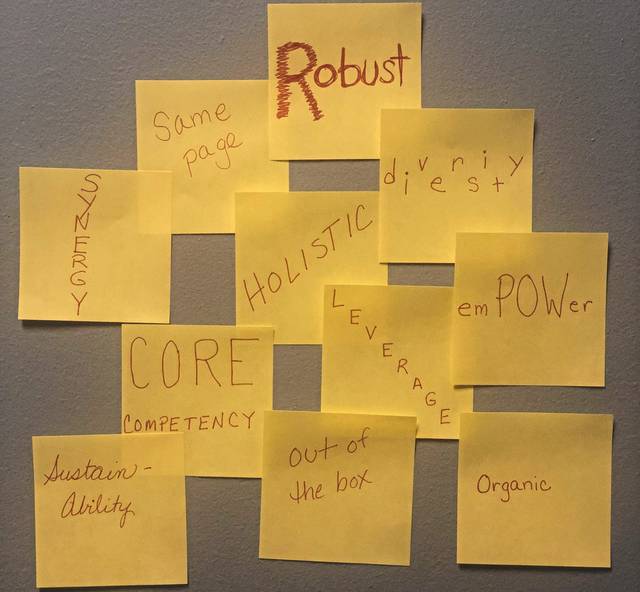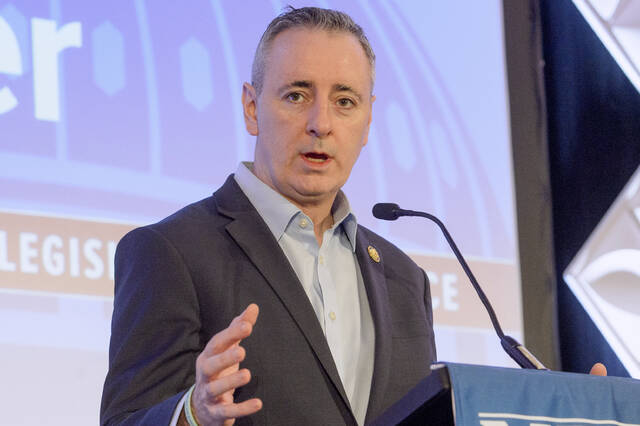I kept a little running tally in the corner of my notebook while the meeting went on.
Interspersed with the critical business of running a university, the Penn State trustees and administrators would drop certain words so often I started to wonder if there was a cash prize or a bingo card involved.
Holistic, robust, synergy, core competency, leverage, sustainability, diversity, empowerment, organic. I ticked them off each time they arose. Robust was winning by a landslide, but organic was a solid second place in the buzzwords Olympics.
Buzzwords are those little bits of jargon that start to spread like a virus, infecting industries and conversations far from their origin. They get us “all on the same page” and help us “think outside the box.” And there is nothing that is immune.
I don’t have a notebook big enough to keep track of the buzzwords in politics. Watch any news or opinion program on any network for an hour, and you will hear the same words repeated like a pop-song chorus.
Many are familiar. Leverage. Empowerment.
Then there are the more specific ones. Constituencies. Engagement. Proactive. Stakeholder.
There are the trendy. Nothingburger. Whataboutism. Snowflake.
And they totally don’t work. Well, OK, that’s not fair. Buzzwords in politics do two things well. They just aren’t terribly helpful.
First, they check off boxes. Buzzwords can be peppered into a speech or tweet or comment to gain traction with a particular audience. Want to suggest an environmental angle? Use the word sustainability, which promises nothing but smells faintly of saving whales. Mention diversity, and you might scores points with women or minorities.
They can also signal a side, as talking points for every camp are less position statements than they are buzzword flashcards.
And that is the problem. Buzzwords are labels, not questions or answers. They aren’t meant to start or advance a conversation. They are only there to fill space with something that sounds like an idea but is really just a facade that indicates where an idea should be.
Some of that is the fault of technology. Selling an idea has to fit into a sound-bite-sized hole in a TV interview, which doesn’t provide enough time for backstory or context and has to depend on a shared narrative that tries to, well, yeah, “put us on the same page.” And then there is the growing popularity of memes as a social-media shorthand that seeks to express a whole dissertation in one bold-printed phrase.
But bumper stickers can take the place of really thinking about a problem, formulating a solution and trying to articulate it to others. Maybe the thinking and formulating is still happening, but too often, the articulating isn’t.
That’s not just unfortunate. It’s insulting. People deserve real explanations. Instead, they get a robust synergy of core competencies that leverages holistic empowerment of organic stakeholders.
Maybe someone should think outside the box.








